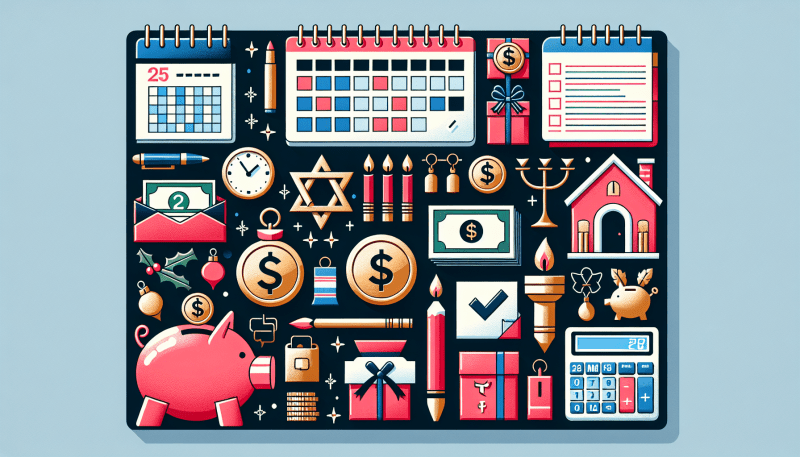Getting started with beginner budgeting can feel overwhelming, but mastering your money basics is the first step toward financial security! Understanding how to manage your income and expenses is key to building a solid foundation for your financial future. Start by tracking your income sources, like your salary, freelance work, or any side hustles you might have. Knowing how much money is coming in is essential for crafting a budget that works for you.
Next, list out your monthly expenses. This includes fixed costs such as rent or mortgage, utilities, groceries, and transportation. Don’t forget to include variable expenses like entertainment and dining out. By categorizing your spending, you can easily see where your money is going and identify areas where you can cut back. This process can help you make informed decisions and prioritize your spending, which is a crucial skill in beginner budgeting.
Once you have a clear picture of your income and expenses, it’s time to create your budget. There are several methods to choose from, such as the 50/30/20 rule, which allocates 50% of your income to needs, 30% to wants, and 20% to savings or debt repayment. Experiment with different approaches to find out what works best for your lifestyle and financial goals. Remember, budgeting is a flexible tool that can adapt to your life changes, so don’t be afraid to make adjustments as necessary.
Finally, keep track of your spending throughout the month. This practice not only helps you stay within your budget but also reinforces good financial habits. Utilize budgeting apps or simple spreadsheets to monitor your progress. Regular check-ins can help you stay accountable and motivate you to stick to your budgeting goals. By mastering these money basics, you’ll pave the way for smart financial management and a stronger grasp of beginner budgeting.
Set Clear Financial Goals
Setting clear financial goals is a crucial first step in your journey towards mastering beginner budgeting. When you have specific objectives in mind, it becomes much easier to allocate your resources and stay on track. Whether your goals are short-term, like saving for a vacation, or long-term, like preparing for retirement, defining them should be your starting point.
Begin by writing down your financial goals. This will give you a visual representation of what you want to achieve and help keep you motivated. Make sure to keep these goals SMART: Specific, Measurable, Achievable, Relevant, and Time-bound. For instance, instead of saying, "I want to save money," try "I want to save $1,000 in the next six months." This clarity will guide your beginner budgeting efforts and allow you to track your progress effectively.
Next, prioritize your goals. Not all financial goals should be treated equally. Some may require immediate attention, while others can be tackled later. Determine which ones align with your current financial situation and focus on those first. This approach ensures that you are not overwhelmed and can make steady progress without feeling lost.
Finally, revisit your financial goals regularly. Life changes, and so should your plans. By assessing your goals every few months, you can make necessary adjustments and keep yourself accountable. This practice will not only help refine your beginner budgeting strategy but also ensure that you remain committed to your financial growth.
Track Your Spending Smartly
One effective way to track your spending is by using budgeting apps or tools. These digital platforms allow you to categorize your expenses effortlessly, making it easy to see how much you're spending on necessities versus non-essentials. You can also set up alerts that notify you when you're approaching your budget limits, helping you stay on course with your beginner budgeting goals.
If you prefer a more hands-on approach, consider maintaining a spending journal. Simply write down every expense daily. This not only keeps you accountable but also fosters a deeper understanding of your purchasing habits. As you track your spending, you may discover areas where you can cut back, allowing you to allocate more towards savings or debt repayment—a key aspect of effective beginner budgeting.
Lastly, make it a habit to review your budget regularly. Weekly or monthly check-ins will help you evaluate how your spending aligns with your financial goals. This allows you to adjust as needed and reinforces the discipline required for successful beginner budgeting. Remember, the goal is progress, not perfection, so take it one step at a time!
Build Your Savings Plan
Building your savings plan is a crucial step in mastering beginner budgeting. It sets a solid foundation for achieving your financial goals and ensures you have a safety net for unexpected expenses. Start by determining how much you want to save. Whether it’s for an emergency fund, a vacation, or a big purchase, having a clear target will keep you motivated. Aim to set aside a specific percentage of your income each month to guide your savings journey.
Next, make savings automated. One of the easiest ways to stick to your savings goals is to treat your savings like a recurring bill. Set up automatic transfers from your checking account to your savings account right after you get paid. This way, you won’t be tempted to spend that money, and you’ll be consistently building your savings without even thinking about it. This simple strategy is key in beginner budgeting because it removes the hassle of manual transfers.
Additionally, consider using various savings accounts to keep track of your different goals. For instance, you could have separate accounts for your emergency fund, vacation savings, and any other specific aspirations. This not only helps you visualize your progress but also makes it easier to allocate funds appropriately. Remember, every little bit counts, so don’t hesitate to start small. Even minor contributions can add up over time, especially when you’re practicing smart beginner budgeting.



